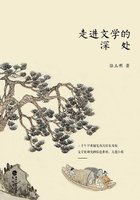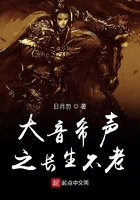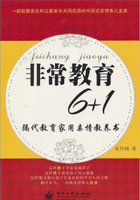Though the Brazilians were decisively beaten at the Battle of Ituzaingo, on February 20, 1827, the struggle lasted until August 28, 1828, when mediation by Great Britain led to the conclusion of a treaty at Rio de Janeiro, by which both Brazil and the Argentine Confederation recognized the absolute independence of the disputed province as the republic of Uruguay.
Instead of quieting the discord that prevailed among the Argentinos, these victories only fomented trouble. The federalists had ousted Rivadavia and discarded the constitution, but the federal idea for which they stood had several meanings.
To an inhabitant of Buenos Aires federalism meant domination by the capital, not only over the province of the same name but over the other provinces; whereas, to the people of the provinces, and even to many of federalist faith in the province of Buenos Aires itself, the term stood for the idea of a loose confederation in which each provincial governor or chieftain should be practically supreme in his own district, so long as he could maintain himself. The Unitaries were opponents of both, except in so far as their insistence upon a centralized form of government for the nation would necessarily lead to the location of that government at Buenos Aires. This peculiar dual contest between the town and the province of Buenos Aires, and of the other provinces against either or both, persisted for the next sixty years. In 1829, however, a prolonged lull set in, when Rosas, the gaucho leader, having won in company with other caudillos a decisive triumph over the Unitaries, entered the capital and took supreme command.
In Chile the course of events had assumed quite a different aspect. Here, in 1818, a species of constitution had been adopted by popular vote in a manner that appeared to show remarkable unanimity, for the books in which the "ayes" and "noes" were to be recorded contained no entries in the negative! What the records really prove is that O'Higgins, the Supreme Director, enjoyed the confidence of the ruling class. In exercise of the autocratic power entrusted to him, he now proceeded to introduce a variety of administrative reforms of signal advantage to the moral and material welfare of the country. But as the danger of conquest from any quarter lessened, the demand for a more democratic organization grew louder, until in 1822 it became so persistent that O'Higgins called a convention to draft a new fundamental law. But its provisions suited neither himself nor his opponents. Thereupon, realizing that his views of the political capacity of the people resembled those of Bolivar and were no longer applicable, and that his reforms had aroused too much hostility, the Supreme Director resigned his post and retired to Peru. Thus another hero of emancipation had met the ingratitude for which republics are notorious.
Political convulsions in the country followed the abdication of O'Higgins. Not only had the spirit of the strife between Unitaries and Federalists been communicated to Chile from the neighboring republic to the eastward, but two other parties or factions, divided on still different lines, had arisen. These were the Conservative and the Liberal, or Bigwigs (pelucones) and Greenhorns (pipiolos), as the adherents of the one derisively dubbed the partisans of the other. Although in the ups and downs of the struggle two constitutions were adopted, neither sufficed to quiet the agitation. Not until 1830, when the Liberals sustained an utter defeat on the field of battle, did the country enter upon a period of quiet progress along conservative lines.
>From that time onward it presented a surprising contrast to its fellow republics, which were beset with afflictions.
Far to the northward, the Empire of Mexico set up by Iturbide in 1822 was doomed to a speedy fall. "Emperor by divine providence,"that ambitious adventurer inscribed on his coins, but his countrymen knew that the bayonets of his soldiers were the actual mainstay of his pretentious title. Neither his earlier career nor the size of his following was sufficiently impressive to assure him popular support if the military prop gave way. His lavish expenditures, furthermore, and his arbitrary replacement of the Congress by a docile body which would authorize forced loans at his command, steadily undermined his position. Apart from the faults of Iturbide himself, the popular sentiment of a country bordering immediately upon the United States could not fail to be colored by the ideas and institutions of its great neighbor. So, too, the example of what had been accomplished, in form at least, by their kinsmen elsewhere in America was bound to wield a potent influence on the minds of the Mexicans. As a result, their desire for a republic grew stronger from day to day.
Iturbide, in fact, had not enjoyed his exalted rank five months when Antonio Lopez de Santa Anna, a young officer destined later to become a conspicuous figure in Mexican history, started a revolt to replace the "Empire" by a republic. Though he failed in his object, two of Iturbide's generals joined the insurgents in demanding a restoration of the Congress--an act which, as the hapless "Emperor" perceived, would amount to his dethronement.
Realizing his impotence, Iturbide summoned the Congress and announced his abdication. But instead of recognizing this procedure, that body declared his accession itself null and void;it agreed, however, to grant him a pension if he would leave the country and reside in Italy. With this disposition of his person Iturbide complied; but he soon wearied of exile and persuaded himself that he would not lack supporters if he tried to regain his former control in Mexico. This venture he decided to make in complete ignorance of a decree ordering his summary execution if he dared to set foot again on Mexican soil. He had hardly landed in July, 1824, when he was seized and shot.















